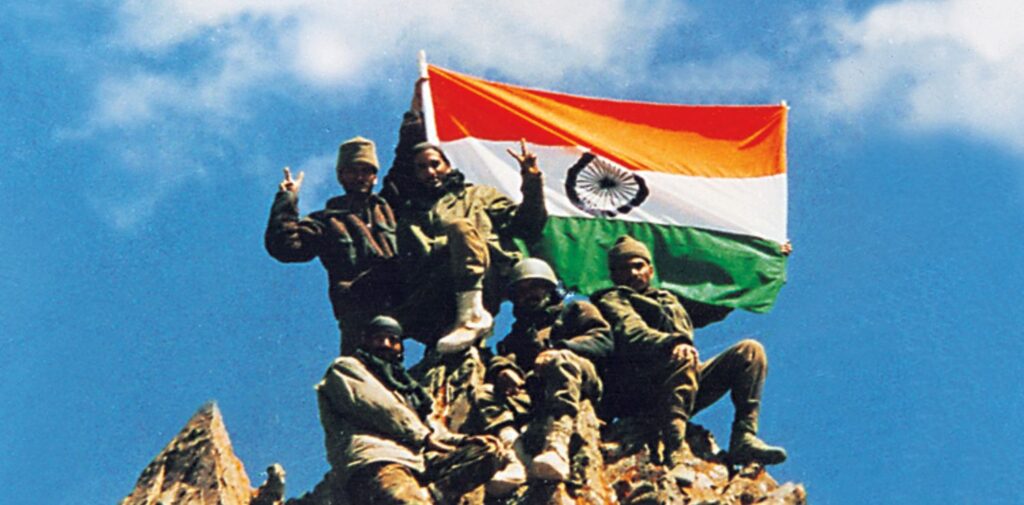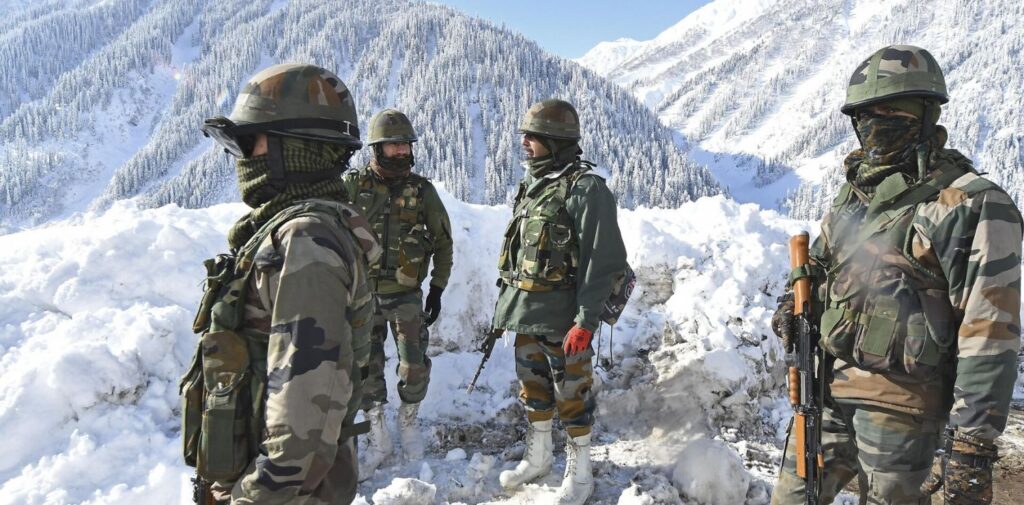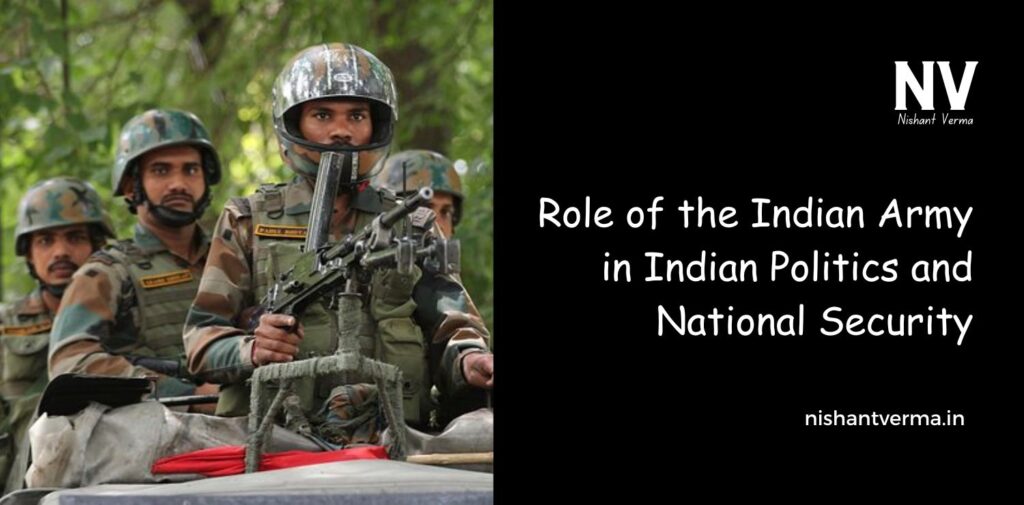India, one of the largest and most diverse countries in the world, has a long and rich history. A significant part of this history is the role of the Indian Army, which has been essential in both the independence struggle and in ensuring the country’s security and political stability. The Indian Army’s role extends far beyond the battlefield. It is deeply involved in maintaining peace, protecting borders, and sometimes even shaping the political landscape of the country. In this article, we will explore the role of the Indian Army in politics and national security in simple terms that everyone can understand.
The History of the Indian Army
Before India became independent in 1947, the British ruled the country for over 200 years. During this period, the British used the Indian Army to maintain control over the land and its people. However, the Indian Army was also part of the struggle for freedom. Many brave soldiers fought for independence, and some even joined the Indian National Army, led by Subhas Chandra Bose, to fight against British rule.
When India finally became an independent nation in 1947, the Indian Army became a national force, tasked with protecting the newly formed country and its people. The Army also played a key role in shaping India’s borders after independence, especially in regions like Kashmir.

The Indian Army’s Role in National Security
National security is one of the most important responsibilities of any country. It involves protecting the country’s borders from external threats, ensuring the safety of citizens, and maintaining peace within the country. The Indian Army plays a huge role in keeping India safe from dangers both inside and outside the country.
Protecting the Borders
India shares its borders with several countries, including China, Pakistan, Bangladesh, and Nepal. These borders are sometimes a source of tension, and there have been conflicts in the past, especially with Pakistan and China. The Indian Army is always on alert, guarding these borders to protect the country from foreign attacks.
The Indian Army’s soldiers are stationed in difficult terrains like the high mountains of Kashmir and the hot deserts of Rajasthan. They often face extreme weather conditions and tough living conditions, but their job is to ensure that no one can harm the country.
Counter-Terrorism Operations
Another important role of the Indian Army is to protect India from terrorism. Terrorists from neighboring countries have sometimes crossed into India to cause harm and destruction. In such cases, the Indian Army is called upon to conduct counter-terrorism operations to safeguard the citizens.
In places like Jammu and Kashmir, where there have been many terrorist attacks, the Indian Army works alongside the police and intelligence agencies to hunt down terrorists and stop their plans. These operations are dangerous, but the army’s dedication and courage play a major role in reducing terrorism in the country.
Peacekeeping Missions
The Indian Army is also known for its peacekeeping efforts around the world. India is one of the largest contributors to United Nations peacekeeping missions. The army sends soldiers to various conflict zones across the world to help maintain peace and order.
These peacekeepers work to protect civilians and ensure that there is no violence in war-torn regions. By participating in such missions, India not only helps other countries but also shows its commitment to global peace and stability.

The Indian Army and Politics
While the Indian Army’s main role is to protect the country, it also has an indirect influence on politics in India. Politics and the military are two separate areas, but they sometimes overlap in certain situations. Let’s look at how the Indian Army has played a role in politics.
The Army and Political Stability
One of the most important ways the Indian Army affects politics is by ensuring political stability. The Army’s role is to stay away from political matters and focus only on national security. India has a democratic system, which means the people elect their leaders. The army supports the democratic process by staying out of politics and focusing on its job of protecting the country.
However, in some countries, the military gets involved in politics, sometimes even taking over the government. In India, the army has never done this. Despite facing challenges, the Indian Army has always respected the democratic process, which has helped in maintaining political stability in the country.
The Army’s Role in Natural Disasters
Sometimes, the Indian Army plays a role in politics without directly involving itself in political issues. For example, when natural disasters like floods, earthquakes, or cyclones strike, the army steps in to help the government. The army’s role in disaster relief often helps strengthen the bond between the people and the government. It shows that the army is not just a force for war but also a caring and helpful organization that supports its citizens in times of need.
Political Influence in Emergency Situations
In times of war or national crisis, the Indian Army’s role becomes even more significant. For example, during wars with Pakistan, such as the wars in 1947, 1965, and 1971, the Indian Army had a significant role in protecting the country’s interests. In such times, the political leaders rely heavily on the advice of military officials to make important decisions.
At times, political leaders consult military experts to understand the situation on the ground, and military leaders might even influence decisions related to war. However, the army’s role in politics is always under the control of the elected government, and the Indian Constitution clearly states that the army must serve the government and not act independently.

Challenges Faced by the Indian Army
The Indian Army, like any other organization, faces several challenges in performing its duties. Some of these challenges are related to the difficult conditions in which soldiers have to work, while others involve the need for modern equipment and training.
- Harsh Living Conditions: Indian Army soldiers often serve in remote areas, such as high-altitude regions, deserts, and forests. These areas have tough living conditions with extreme weather, lack of resources, and limited access to comforts. Despite these challenges, the soldiers stay committed to their duty and protect the country with honor.
- Modernizing the Army: With the changing times, the Indian Army also faces the challenge of keeping up with modern technology. The army must ensure that it has the latest weapons, vehicles, and equipment to face new threats, such as cyber-attacks and advanced missile systems. This requires constant investment in research and development, as well as better training for soldiers.
Conclusion
The Indian Army has played a crucial role in ensuring the safety and security of the nation. It is responsible for guarding India’s borders, protecting the country from terrorism, and even helping in times of natural disasters. While the army stays out of politics, it plays an important role in maintaining the stability of the country, especially during times of national crisis.
By understanding the role of the Indian Army, we realize that it is not just a fighting force, but a symbol of courage, sacrifice, and patriotism. The brave soldiers of the Indian Army work tirelessly to ensure that India remains safe and secure, and their dedication continues to inspire generations of Indians. Their service to the nation is a reminder that national security is not just the responsibility of the government or the army, but of every citizen who stands together for a better, safer India.




